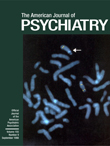Dr. Brodie Replies
To the Editor: Dr. Stotland raises appropriate concerns about the adequacy of questions asked in the public opinion polls we cited on the subject of abortion and the relative insensitivity of these polls in measuring how people actually feel and behave when they find themselves in critical situations. In fact, her points are good examples of the sorts of questions that need to be systematically addressed over time—for example, we were unable to find sufficient longitudinal comparative data on questions about abortion and stage of gestation. While we do not argue with Dr. Stotland’s statement that the health and safety of a mother and fetus are closely intertwined, we must again note that the questions we considered in this article were those available in extant polling data and, therefore, not in our power to refine. The dissonance between private need and public opinion that Dr. Stotland notes is precisely why we believe psychiatrists need to cultivate an awareness of specific social climates—to acknowledge and understand the conflicts with which our patients struggle. As we stated in our article, the longitudinal polling data we were able to compile on the issues of abortion and physician-assisted suicide confirmed for us the importance of developing a body of normatological measurements specifically designed for psychological assessment. The available polls are indeed but crude instruments for measuring complexities of human feeling. They do provide some evidence of trends, however, if “through a glass, darkly,” and support our conclusions that abortion in our society will continue to be controversial and a source of confusion for our patients.



